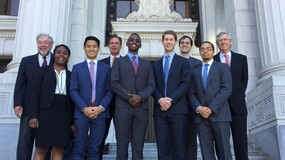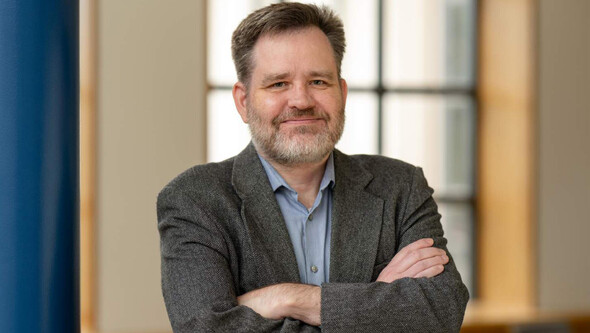
Moving Justice Forward Conference Held Oct 5–6
The Justice Collaboratory at Yale Law school will be hosting the Moving Justice Forward conference on October 5-6, 2017.

Opioid Crisis Forum Examines Ways to Combat Deadly Epidemic
More than 400 people attended a conference on September 29, 2017 on “The Opioid Crisis in Connecticut,” jointly sponsored by Yale Law School and the United States Attorney for the District of Connecticut.

Civil Rights Lawyer Mary Bonauto to Give Lecture on November 6
Mary Bonauto, Civil Rights Project Director at Gay & Lesbian Advocates & Defenders, will give the 2017–2018 Robert H. Preiskel and Leon Silverman Program on the Practicing Lawyer and the Public Interest on November 6, 2017, at 4:30 pm in the Faculty Lounge.

Award-Winning Authors Saks and Solomon to Give Lecture on Mental Health
On October 23, 2017, Yale Law School and the Solomon Center for Health Law and Policy will host a Dean’s Lecture on mental health with acclaimed authors Elyn Saks ’86 and Andrew Solomon JE ’85 speaking about their award-winning books.

YLS Clinic Defends Right to an Education Before CT Supreme Court
Students and faculty from the Education Adequacy Project (EAP) appeared before the Connecticut Supreme Court to defend the clinic’s historic 2016 trial court victory in CCJEF v. Rell.

Professor Amar Testifies Before Senate on Special Counsel Legislation
Sterling Professor of Law Akhil Reed Amar ’84, a leading Constitutional Law expert, testified before the U.S. Senate on Tuesday, September 26, 2017 about two new bills that attempt to protect Special Counsel Robert Mueller from being fired by the President.

Lowenstein Clinic Co-authors Report on Extreme Isolation in Prisons
The Center for Constitutional Rights (CCR) and the Allard K. Lowenstein Human Rights Clinic at Yale Law School released a report documenting the U.S. government’s use of a secretive form of extreme isolation in federal prisons.

Criminal Justice Clinic Releases Report on Parole Reform
A new report highlights opportunities for the State of Connecticut to reduce the high rate of incarceration attributable to its parole revocation process.




